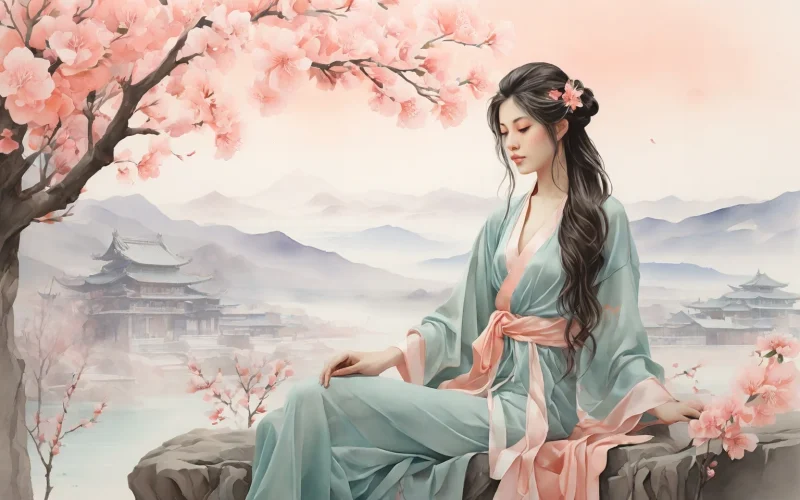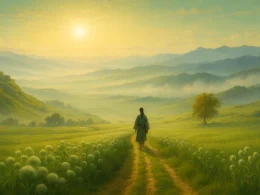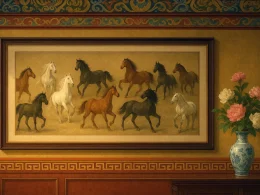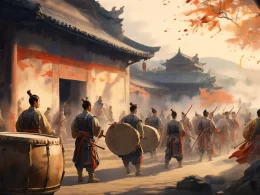May’s pomegranates blaze with crimson light,
First fruits peep through leaves, small and bright.
No carriage dust stains this lonely place—
Only scarlet petals kiss moss in grace.
Original Poem
「题张十一旅舍三咏榴花」
韩愈
五月榴花照眼明,枝间时见子初成。
可怜此地无车马,颠倒青苔落绛英。
Interpretation
Composed during Han Yu's exile to Yangshan (806-807 CE) after his remonstrance incurred imperial wrath, this poem transforms a courtyard pomegranate into a double portrait of disgraced scholars—both the poet and his host Zhang Shiyi suffered southern banishment. Through floral allegory, Han Yu articulates the paradox of intellectual brilliance flourishing in political wilderness, where nature's vibrancy underscores human neglect.
First Couplet: "五月榴花照眼明,枝间时见子初成。"
Wǔyuè liúhuā zhào yǎn míng, zhī jiān shí jiàn zǐ chū chéng.
May's pomegranate blaze dazzles the eye— / Among branches, first fruits take form.
The explosive verb "dazzles" (照眼明) captures the flowers' almost aggressive radiance, their scarlet intensity mocking the gloom of exile. "First fruits" (子初成), observed amidst full bloom, becomes a botanical metaphor for resilience—the exiled mind nurturing ideas even in adversity. Han Yu's precision in noting this transitional moment reveals his undimmed capacity for wonder despite displacement.
Second Couplet: "可怜此地无车马,颠倒青苔落绛英。"
Kělián cǐ dì wú chēmǎ, diāndǎo qīngtái luò jiàng yīng.
Pity no carriages grace this solitude— / Crimson petals topple onto moss, drunk.
The shift from celebration to lament is seismic. "Pity" (可怜) indicts the world's indifference to isolated virtue, while "drunk" (颠倒), literally "upside-down," describes both petals' chaotic descent and a topsy-turvy world where brilliance withers unseen. The chromatic clash—crimson on emerald—becomes a visual scream against obscurity.
Holistic Appreciation
The poem's four lines form a clear structure, beginning with blooming pomegranate flowers before shifting to their unnoticed fall—a scene that mirrors human emotions through nature. The vivid brilliance of the blossoms starkly contrasts with their "no carriages or horses" neglect, symbolizing the poet and his friend: radiant yet isolated, flourishing yet overlooked. Without explicit lament, the verses subtly convey quiet indignation and noble self-regard, exemplifying Han Yu's signature style of "expressing ideals through objects." Its restrained beauty blends scene and sentiment, bright surfaces shading into melancholy depths, leaving lasting resonance.
Artistic Merits
- Stark Contrasts, Minimalist Strokes: The poem builds striking visual and emotional tension with economical precision.
- Vivid Simplicity: Fresh, natural language brings details to life—"dazzles the eye" and "crimson petals fall" burst with chromatic intensity and rhythmic urgency, capturing both the vibrancy of southern early summer and the poet's buried discontent.
- Layered Expression: Emotion simmers beneath restraint—satirical yet not angry, mournful yet not resentful—embodying Han Yu's "incisive satire and austere classicality."
Insights
Through the pomegranate flowers' splendor and solitude, the poem reflects gifted minds marginalized by circumstance, revealing the poet's unyielding spirit even in exile. It teaches: adversity cannot diminish intrinsic worth; true value persists beyond applause. Han Yu's fallen petals voice not just grievance but reverence for integrity and kinship. Amid life's clamor, inner clarity and self-assurance remain the rarest brilliance—the most enduring "dazzle to the eye."
About the Poet
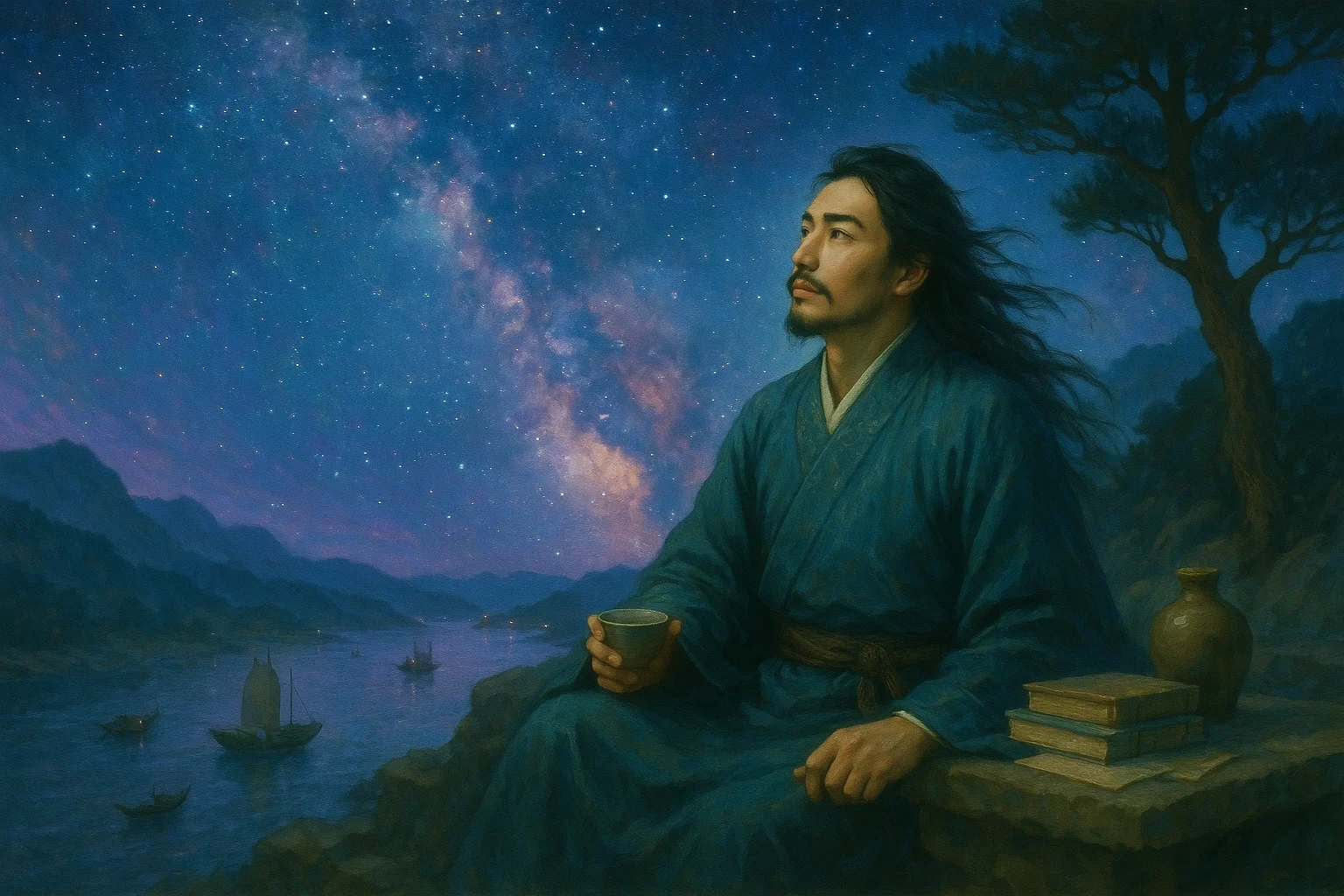
Han Yu (韩愈, 768 - 824), originario de Mengzhou en Henan, fue el líder del Movimiento de la Prosa Antigua durante la dinastía Tang. Obtuvo el título de jinshi en 792 y ascendió al cargo de Viceministro de Personal. Su prosa es vigorosa y poderosa, mientras que su poesía se caracteriza por un estilo audaz y poco convencional. Su poema Rocas de la Montaña (山石) inauguró la técnica de "prosificar la poesía". Fue mentor de poetas como Meng Jiao y Jia Dao, y es considerado el principal de los "Ocho Grandes Maestros de la Prosa de Tang y Song". Sus contribuciones revolucionarias a la literatura tuvieron una influencia profunda y duradera, lo que le valió el título honorífico de "Maestro Literario de las Generaciones".







